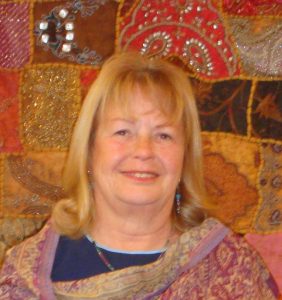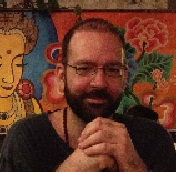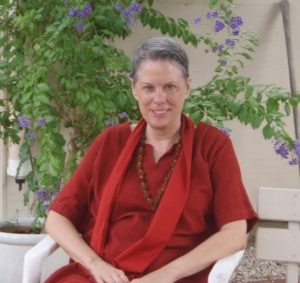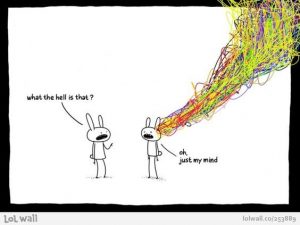The first time I heard OM, it had a profound effect on me. Why? I didn’t know it at the time, but it was the first word in my spiritual life. It is also the first word in my mantra.
 Many mantras begin with the word OM. OM is the primordial sound, meaning it is from before the beginning of time. It is the vibration of which the universe is made. It is what you are made of.
Many mantras begin with the word OM. OM is the primordial sound, meaning it is from before the beginning of time. It is the vibration of which the universe is made. It is what you are made of.
Mantras are in Sanskrit, a vibrational language, a very melodious one. The actual letters in print appear so different from our Western alphabet. But once you learn the Sanskrit words, the mantra just flows off your tongue. The enlivened mantra of our lineage creates a current of energy. Every time you say it, it starts at your tailbone and creates energy all the way up your spine. This is the mantra’s purpose: to spark the arising energy that is the awakening of your own Self within you. So that you can see who you are — you can see and feel and know. More than that, you can BE who you really are — at the deepest level within.
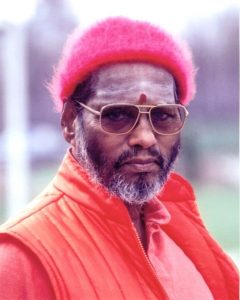 Swami Muktananda taught us that language has tremendous power. A word can make us aware of something which exists at a great distance, even distant galaxies. Baba told us that every word and every single letter is a mantra, whether we use it in our worldly or in our spiritual life. He means that words have power.
Swami Muktananda taught us that language has tremendous power. A word can make us aware of something which exists at a great distance, even distant galaxies. Baba told us that every word and every single letter is a mantra, whether we use it in our worldly or in our spiritual life. He means that words have power.
Everyone brightens up when hearing words of praise or thanks, but not so much with words in the opposite vein. And what about the words you use on yourself; are they on the negative or positive side? It makes a big difference. If you think of yourself as a doofus, how do you think you will act? If you think of yourself as competent, how do you think you will act? Even “doofus” and “competent” are mantras! Yes, words have power in your worldly life. However, words are so much more powerful when used in your spiritual life. These mantras take you to your Self.
I am very aware of how my words affect others. I try very hard not to be negative toward or about others. Am I perfect? Definitely not! The more I say mantra, the better I am at saying what I really mean, but without negatively impacting others. Today, I could not exist without my mantra. Not only does it take me into meditation. It also keeps me on an even keel during my daily life.
 Saying mantra is so very powerful. When meditating, I start out silently repeating my enlivened mantra, which I got from my Master, Swami Nirmalananda. It fills my head, slowly drifting downward into my heart. The mantra fills my entire inner space — so easily and so simply. The mantra is me. I am it. When the whole inside of my body and being is filled with mantra, I know I am my own Divine Self.
Saying mantra is so very powerful. When meditating, I start out silently repeating my enlivened mantra, which I got from my Master, Swami Nirmalananda. It fills my head, slowly drifting downward into my heart. The mantra fills my entire inner space — so easily and so simply. The mantra is me. I am it. When the whole inside of my body and being is filled with mantra, I know I am my own Divine Self.
OM svaroopa svasvabhavah namo namah
